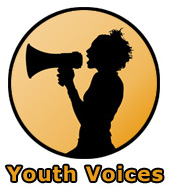Creating Change Starts with Opening Your Mind
At the Creating Change conference, I learned that the key to movement building is bringing everyone to the table by creating the message that our issues are all tied to human rights.
"In the social justice movement, it's comforting to be surrounded by like-minded people. I don't have to only put on my women's rights hat, or GLBT rights hat, or even my disabilities' rights hat–I can just be me." What a heartwarming comment to the opening plenary of the Creating Change Conference — am I right?
It has only been a day into Creating Change and I already feel like I've taken a huge bite into what I've had a craving for since I registered months before. For someone who has only recently questioned my sexuality and for most of my years identified as a heterosexual female, Creating Change has surely given me the chance to reflect and evaluate my position in the GLBT community. Being an Ethiopian-American 22-year-old woman, I've always felt part of the "affected" community in the reproductive and sexual health movement, whether it was in a domestic and global context. But, for the first time, I walked into a conference feeling like an "unaffected" person by the issues I knew would be discussed here. After a little more thinking, I knew that I was completely wrong. The truth is that GLBT issues are my issues, regardless of my sexual orientation or gender.
 The key to movement building is bringing everyone to the table by learning how to build relationships cross-culturally and creating the message that this isn't just limited to you or me — but is really tied to human rights. We are living in a world of intersectional oppression, where any kind of oppression — whether it's based on gender, race, sexual orientation, religion, and so forth — cannot and will not impact us as much exclusively without the others at force. In theory, I have always believed that seeing others' liberation as connected to my own makes so much sense, but it took today's discussion at the Institute to really make that theory a reality.
The key to movement building is bringing everyone to the table by learning how to build relationships cross-culturally and creating the message that this isn't just limited to you or me — but is really tied to human rights. We are living in a world of intersectional oppression, where any kind of oppression — whether it's based on gender, race, sexual orientation, religion, and so forth — cannot and will not impact us as much exclusively without the others at force. In theory, I have always believed that seeing others' liberation as connected to my own makes so much sense, but it took today's discussion at the Institute to really make that theory a reality.
The all-day institute I'm referring to –"Bridging Communities of People of Color"– was calling my name. The agenda was to structure the domestic issues in a global context. As a second-generation immigrant and person of color, it has been clear as day that the greatest and most unfortunate divide of people in the United States has been between immigrants and naturally-born people of color. This is where I believe the social justice movement needs to focus their efforts to bridge these groups.
One of the more interesting links we discussed was on globalization and the International Monetary Fund (IMF) and how its impact on poor countries and their economies has forced their citizens to come to the United States. Alas, many people have been fed the misperception that the immigrant issue is a "domestic problem" and/or a "border issue" that has caused "non-deserving people" to take away jobs from the lower class (hopefully you pick up on my cynicism). During the Institute, we were able to dispel the myths that the United States government and media have painted of America as the "super hero" for the global markets, when in actuality, our country is exploiting those in and outside of our country.
A youth participant at the institute explained how, although all of these issues do not seem to affect the GLBT community, they essentially do. "The U.S. denies the rights of immigrants to live just like they deny the rights of the GLBT community to live as well. By doing so, they are refusing to accept that we exist as human beings."
In the mind of a reproductive and sexual health rights activist like myself, the U.S. has denied young people their right to exist by denying them access to comprehensive sex education, and to appropriate reproductive and sexual health services. By the end of the day, I had learned that it's absolutely necessary to build ties between movements just as it's necessary as building ties between organizations in the reproductive and sexual health rights movement. If not now, then when? Well, this time it will be during the Creating Change Conference!
